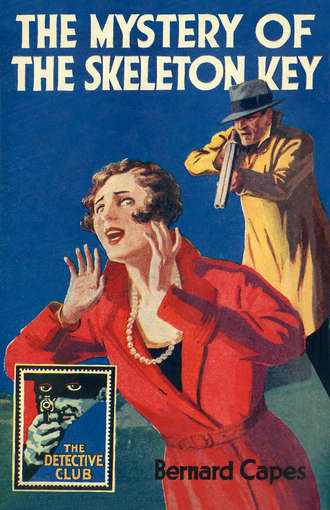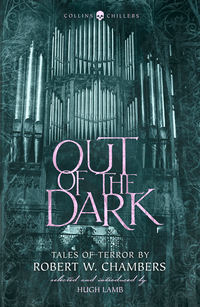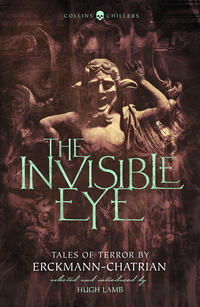
Полная версия
The Mystery of the Skeleton Key
He was flushed, and lethargic, and very difficult to move to further efforts when the meal was over; but we got him out at last and went to work. It did not last long with him. It must have been somewhere short of three o’clock that he shouldered his gun and came plodding to me across the stubble.
‘Look here, Viv,’ he said, ‘I’m going home. Make my apologies to Orsden, and keep it up with him; but I’m no good, and I’ve had enough of it.’
He turned instantly with the word, giving a short laugh over the meaning expressed obviously enough, I dare say, in my eyes, and began to stride away.
‘No,’ he called, ‘I’m not going to shoot myself, and I’m not going to let you make an ass of me. So long!’
I had to let him go. Any further obstruction from me, and I knew that his temper would have gone to pieces. I gave his message to Orsden, and we two continued the shoot without him. But it was a joyless business, and we were not very long in making an end of it. We parted in the road—Orsden for the Bit and Halter and the turning to Leighway, and I for the gates of Wildshott. It was near five o’clock, and a grey still evening. As I passed the stables, a white-faced groom came hurrying to stop me with a piece of staggering news. One of the maids, he said, had been found murdered, shot dead, that afternoon in the Bishop’s Walk.
CHAPTER VI
‘THAT THUNDERS IN THE INDEX’
LE SAGE, in the course of a pleasant little drive with Audrey, asked innumerable questions and answered none. This idiosyncrasy of his greatly amused the young lady, who was by disposition frankly outspoken, and whose habit it never was to consider in conversation whether she committed herself or anyone else. Truth with her was at least a state of nature—though it might sometimes have worn with greater credit to itself a little more trimming—and states of nature are relatively pardonable in the young. A child who sees no indecorum in nakedness can hardly be expected to clothe Truth.
‘This Sir Francis,’ asked the Baron, ‘he is an old friend of yours?’
‘O, yes!’ said Audrey; ‘quite an old friend.’
‘And favourite?’
‘Well, he seems one of us, you see. Don’t you like him yourself?’
‘I suppose he and your brother are on intimate terms?’
‘We are all on intimate terms; Hugh and Frank no more than Frank and I.’
‘And no less, perhaps; or perhaps not quite so much?’
‘O, yes they are! What makes you think so? ’
‘Not quite so intimate, I will put it, as your brother and Mr Bickerdike?’
‘I’m sure I don’t know. Hugh is great friends with them both.’
‘Tell me, now—which would you rather he were most intimate with?’
‘How can it matter to me?’
‘You have a preference, I expect.’
‘I certainly have; but that doesn’t affect the question. It was Hugh you were speaking of, not me.’
‘Shall I give your preference? It is for Mr Bickerdike.’
‘Well guessed, Baron. Am I to take it as a compliment to my good taste?’
‘He is a superior man.’
‘Isn’t he? And always wishes one to know it, too.’
‘Aha! Then the Baronet is the man?’
‘How absurd you are! Do you value your friends by preference? Nobody is the man, as you call it. Because I don’t much like Mr Bickerdike, it doesn’t follow that I particularly like anybody else.’
‘Why don’t you like him?’
‘I don’t know. Perhaps because he likes himself too much.’
‘Conceited, is he?’
‘Not quite that: a first-rate prig I should call him—always wanting to appear cleverer than he really is.’
‘Isn’t he clever?’
‘O, yes! Clever after a sort; but frightfully obtuse, too. I wouldn’t trust him with a secret. He’s so cocksure of himself that he’d always be liable to give it away with his blessing. But I oughtn’t to speak like that of him. He’s a great friend of Hugh’s, and he does really like to help people, I think, only it must be in his own way and not theirs. Do you like him?’
‘I am rather surprised that he and your brother should be on such close terms of friendship.’
‘Are you? Why?’
‘Is not Mr Hugo, now, without offence, a rather passionate, self-willed young gentleman?’
‘Very, I should say.’
‘Balance and instability—there you are.’
‘You mean they are not at all alike. I should have thought that was the best reason in the world for their chumming. One of oneself is quite enough for most people. Fancy the horror of being a Siamese twin!’
‘Is that why you and Sir Francis are on such good terms—because there is nothing in common between you?’
‘Isn’t there? What, for instance?’
‘He presents himself to me, from what little I have seen and heard of him, as a rather gentle, spiritual young man, with a taste for books and the fine arts, and a preference in sport, if any, for angling. In aere piscari.’
‘What does that mean?’
‘I should fancy him a fisherman, by choice, of ideas rather than of streams.’
‘And me, I suppose, a cross-tempered, empty-headed country hoyden, who thinks of nothing but dogs and stables?’ But she laughed as she bent to Le Sage, looking mockingly into his smiling eyes. ‘M. le Baron, what a character!’
‘It is not of my giving,’ he said. ‘A spirited Diana should have been my antithesis.’
‘But why should you contrast us at all? Frank and I are not going to live together.’
‘You are bearing in mind, I hope,’ he said, ‘that I promised your father to be back at Wildshott by half-past two?’
‘For chess again? What can you find in it?’ She pulled up the pony, and, halting in the road, determinedly faced her companion. ‘Do you know you never answer anything that’s asked of you? Why don’t you?’
‘I didn’t know I didn’t.’
‘Don’t fib, sir.’
He chuckled aloud. ‘You are a frank young lady.’ He took her slim left hand between his cushiony palms, and patted it paternally. ‘When a suspected man is arrested, my dear, the first warning he receives from the police is that anything he says may be used in evidence against him. Supposing we apply that rule to common converse? Then at least we shall avoid self-committal.’
‘But are we all, every one of us, suspected people?’
‘One never knows what may lie in a question. For instance, you ask me what can I find in chess. Very seeming innocent; but, O, the suspicion it may embody!’
‘What suspicion?’
‘Why, that chess represents my poor wits, and that I live upon them.’
Audrey tinkled with laughter. ‘I never guessed I was such a serpent. But I am afraid I was only thinking of the dullness of it. To sit for ten minutes looking at a board, and then to move a pawn a single inch on it! Ugh! By that time I should be screaming for “Grab”.’
‘Let us play “Grab” one night,’ said the Baron gaily.
They drove on by the pleasant lanes, and presently came out into the High Road near Wildshott. As they passed the wicket in the hedge, a gleam of something, quickly seen and quickly withdrawn among the green beyond, caught Le Sage’s attention. He laid a hand on the reins, suggesting a halt.
‘Was that a private way to the house?’ he asked. ‘There, where the little gate stood?’
Audrey told him yes. That it was called the Bishop’s Walk, and that he, might lift the latch and go by it if he pleased. She twinkled as she spoke, and the Baron looked roguish.
‘Inquisitive?’ said he; ‘I admit it, if it is the word for an inquiring mind. But not conceited, I hope. I am going to explore.’
He was out in the road, to the dancing relief of the governess-cart springs, and waved au revoir to his companion. She nodded, and drove on, while he turned to go back to the wicket. He hummed as he went, a little philandering French air, droning the words in a soft, throaty way, and was still recalling them as he mounted the two steps from the road, opened the gate, and passed through. His eyes, moving in an immobile face, were busy all the time. ‘Dites moi, belle enchanteresse,’ he sang, ‘Qui donc vous a donné vos yeux?’ just above his breath and suddenly, at a few yards in, eighteen or twenty, swerved from the close narrow track and stepped behind a beech-trunk. And there was a girl hiding from view, her eyes wide, her forefinger crooked to her lip.
‘Vos doux yeux, si pleins de tendresse,’ hummed M. le Baron, and nodded humorously. ‘I thought I recognised you from the road.’
She did not flush up or exclaim ‘Me!’ or exhibit any of the offensive-defensive pertness of the ordinary housemaid surprised out of bounds. She just stood looking at the intruder, a wonder on her rosy lips, and Le Sage for his part returned her scrutiny at his leisure. His impression of the night before he found more than confirmed by daylight: she was a very Arcadian nymph, with a sweet-briar complexion and eyes and hair of thyme and honey; shapely as a doe, ineffably pretty. He wondered less than ever over Louis’s infatuation.
And what was she doing here? Her head was bare; a light waterproof veiled her official livery: it might be concluded without much circumspection that a tryst was in the air.
‘I am sorry,’ said M. le Baron. ‘I did not come to be a spoil-sport. I ought, perhaps, to have pretended to see nothing and pass by. But that rudeness of my man last night sticks in my mind, and it occurred to me to apologise for him.’
She laughed, with a tiny toss of her head. ‘Thank you, sir, but I can look after myself.’
‘So I perceive,’ he said. ‘You tone very well with the trees. No eyes, except perhaps the favoured ones, could possibly guess you were here.’
‘Except yours, sir,’ she said, with just a tiny sauce of irony.
‘Except mine, of course,’ he agreed; and left her to wonder why, if she would.
‘Well,’ he said, after a smiling moment, ‘that was an unpardonable act of Louis’s, only don’t visit it further on his head. I have wanted to warn you, and here is my opportunity. He comes of a hot-blooded race, and there’s no knowing— But you can look after yourself; I will take your word for it.’
He believed she could, though she made no further answer to assure him; and, with a nod, he went on his way, taking up again the little murmured burden of his song: ‘Yeux, yeux,—Astres divins tombés des cieux.’ ‘O, eyes!’ he said. ‘Sweetest eyes were ever seen! From what heaven did you fall to flower in a housemaid’s face?’ There was something suggestive about the girl, more than her surprising beauty—a ‘towniness’, a hint, both in speech and manner, of some shrewd quality which was not of the soil. ‘When Lamia takes to country service,’ thought the Baron, ‘let more than rustic hearts look to their locks!’ With whom, he wondered, could be her assignation? What if, after all, it were with Louis himself? Would that surprise him? Perhaps not. Cabanis was a handsome and compelling fellow, and women, like the Lord, could chasten whom they loved. But he devoutly hoped it was not so; he desired no amorous complications in his train; and, disturbed by the thought, he inquired for his valet the moment he reached the house—only to learn that the man had gone out some time before and had not yet returned. Somewhat disquieted, Le Sage entered the hall, where he was met by his host.
‘Ah, Baron!’ hailed Sir Calvin. ‘Punctuality itself! Go into my study, will you, and I’ll join you in a moment.’
The study was a comfortable room on the ground floor, with a large bay window overlooking the gardens. Here the table for chess was set ready, with a brace of high easy chairs and, handily contiguous, a smoker’s cabinet. There were trophies of the chase and some good sporting pictures on the walls, against them a couple of mahogany bookcases containing well-bound editions of Alken, Surtees, and others, and, let into an alcove of that one of them which included the fireplace, a substantial safe. Le Sage knew it was there, though it was hidden from sight behind a shallow curtain; and now, as he moved humming about the room, his hands behind his back, his eyes scrutinising a picture or two while he awaited his host’s coming, he gravitated gradually towards its place of concealment. Arrived there, he lifted very delicately, and still humming, the hem of the curtain, just exposed the keyhole, and bent to examine it with singular intentness. But a moment later, when the General entered, he was contemplating a coaching print by Flavell over the mantelpiece.
‘Indifferent art, I suppose you will admit,’ he said. ‘But there is something picturesquely direct about these old Sporting pieces.’
‘Well, they suit me,’ answered Sir Calvin, ‘because I understand them. Red’s red and blue’s blue to me, and if any artist tells me they are not, I’ve nothing to answer the fellow but that he’s a damned liar.’
Le Sage laughed—‘What is the colour of a black eye, then?’—and they settled down to their game. The General was a good player; all the best of his mental qualifications—which were otherwise of the standard common among retired officers of an over-bearing, obstinate, and undiscerning disposition—were displayed in his astute engineering of his small forces. He was a tactical Napoleon in miniature when it came to chess; he seemed to acquire then a reason and a dignity inconspicuous in his dealings with living people. The chess-men could not misrepresent him; their movements were his movements, and their successes or failures his. If he lost, he had no one but himself he could possibly blame, and his understanding of that condition seemed to bring out the best in him. He was never choleric over the fortunes of the game. For the rest, he was not a wise man, or an amenable man, or anything but a typical despot of his class, having an inordinate pride of family, which owed less than it should have to any moral credit he had brought it in the past. In person he was a leanish, clean-built soldier of fifty-five, with bullying eyebrows and a thick blunt moustache of a grizzled blonde.
He and the Baron were very fond of devising problems, which they would send up for solution to the Morning Post. They set to elaborating a tough one now, a very difficult changed-mate two-mover, which kept them absorbed and occupied over the board for a considerable time. Indeed, a full hour and a half had passed before they had settled it to their satisfaction; and then the Baron, taking a refreshing pinch of Macuba, rose to his feet.
‘That is it, my friend,’ said he; ‘an economical B.P. at K. Knight 4, and the thing is done.’
The clock on the mantelpiece chimed a quarter past four as he spoke, and on the tinkling reverberation of its one stroke someone opened the door. It was Hugo Kennett: the young man’s face was ghastly; his hands shook; he came into the room hurriedly, as if overweighted with some dreadful piece of intelligence.
‘Good God, Hughie!’ exclaimed his father, and rose, staring at the boy, his eternal cigarette caught between his teeth.
The young soldier made an effort to speak; his breath fluttered audibly in him like the leaf of a ventilator; his nerve seemed for the moment gone utterly beyond his control.
‘Steady, sir!’ commanded the General; and his masterful tone had its visible effect. ‘Now,’ he said, after a rallying pause. ‘What is it?’
Конец ознакомительного фрагмента.
Текст предоставлен ООО «ЛитРес».
Прочитайте эту книгу целиком, купив полную легальную версию на ЛитРес.
Безопасно оплатить книгу можно банковской картой Visa, MasterCard, Maestro, со счета мобильного телефона, с платежного терминала, в салоне МТС или Связной, через PayPal, WebMoney, Яндекс.Деньги, QIWI Кошелек, бонусными картами или другим удобным Вам способом.







